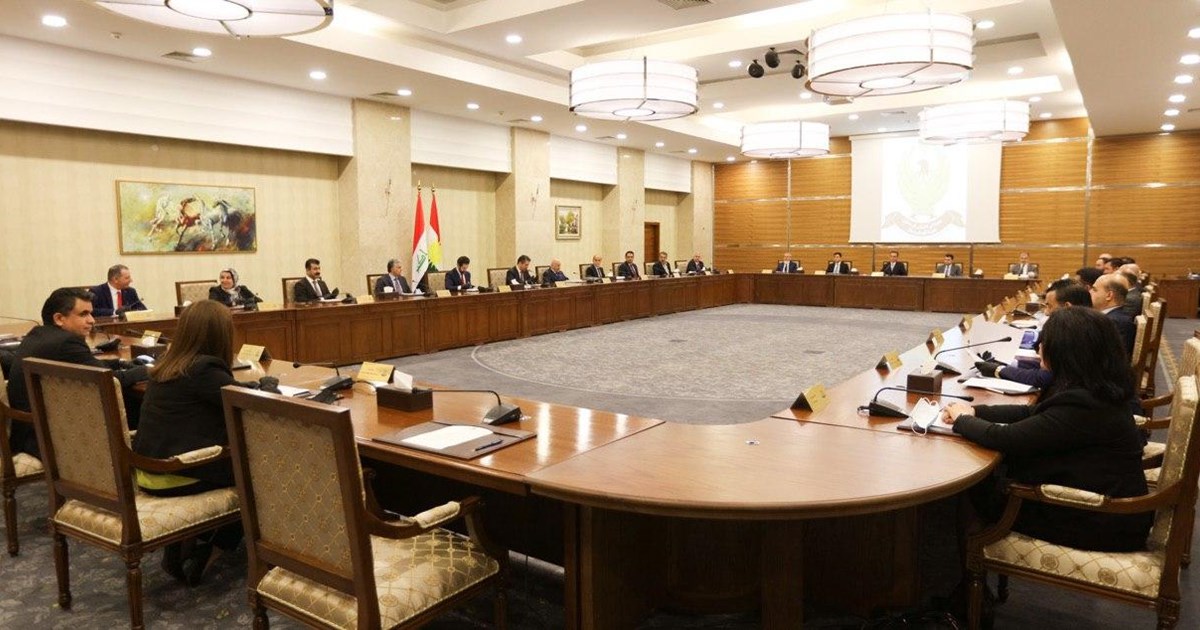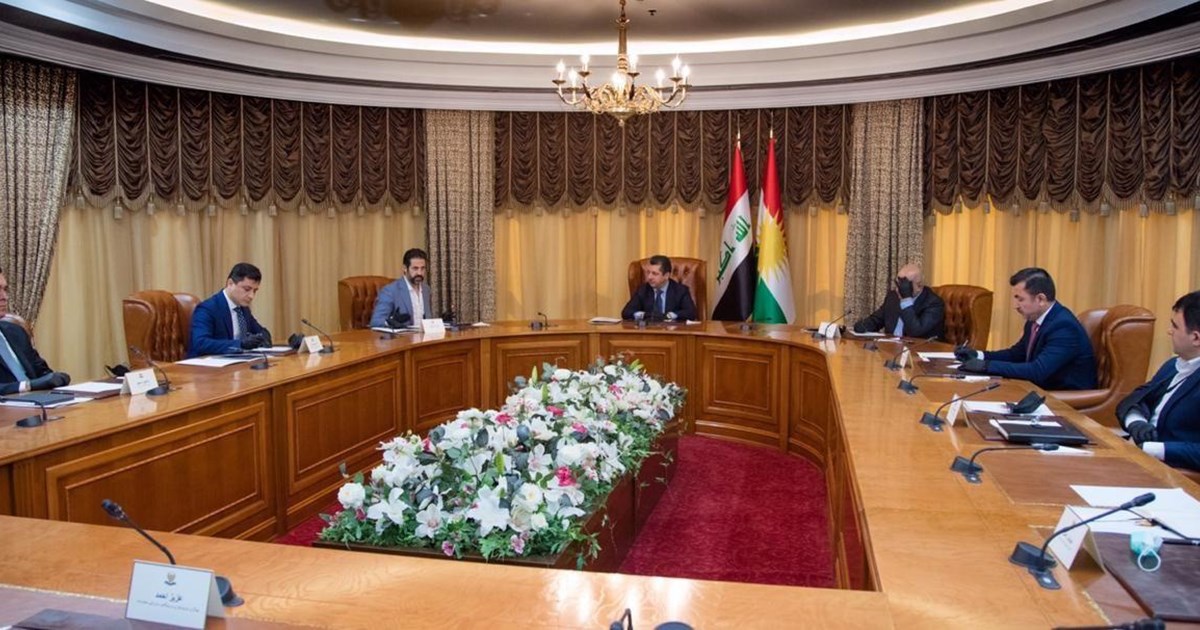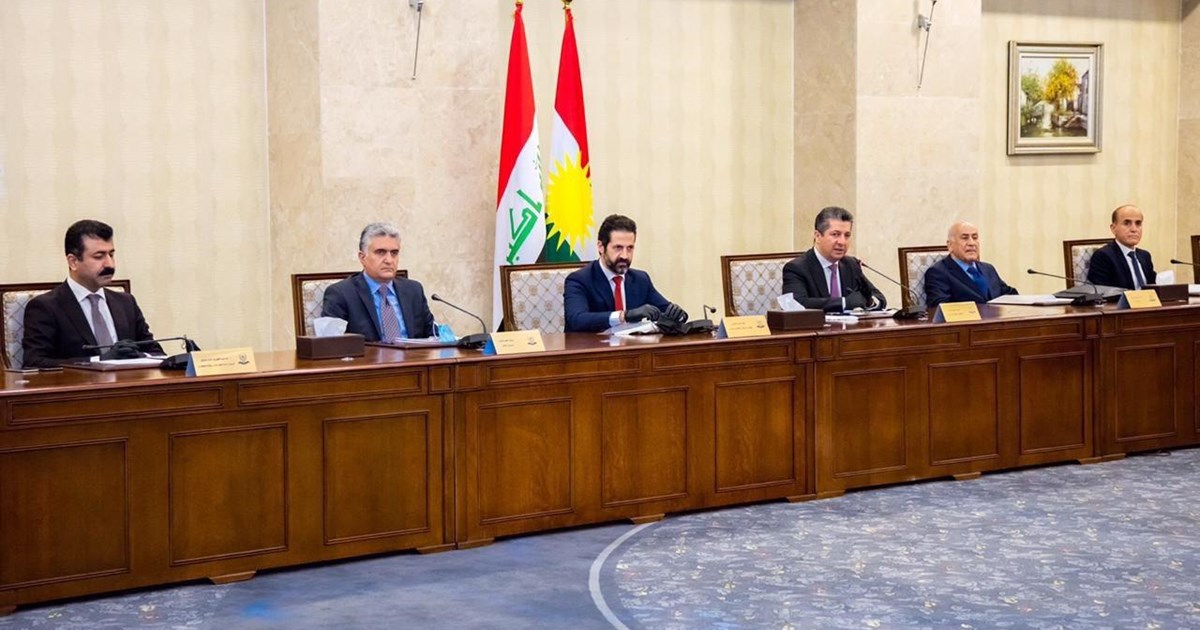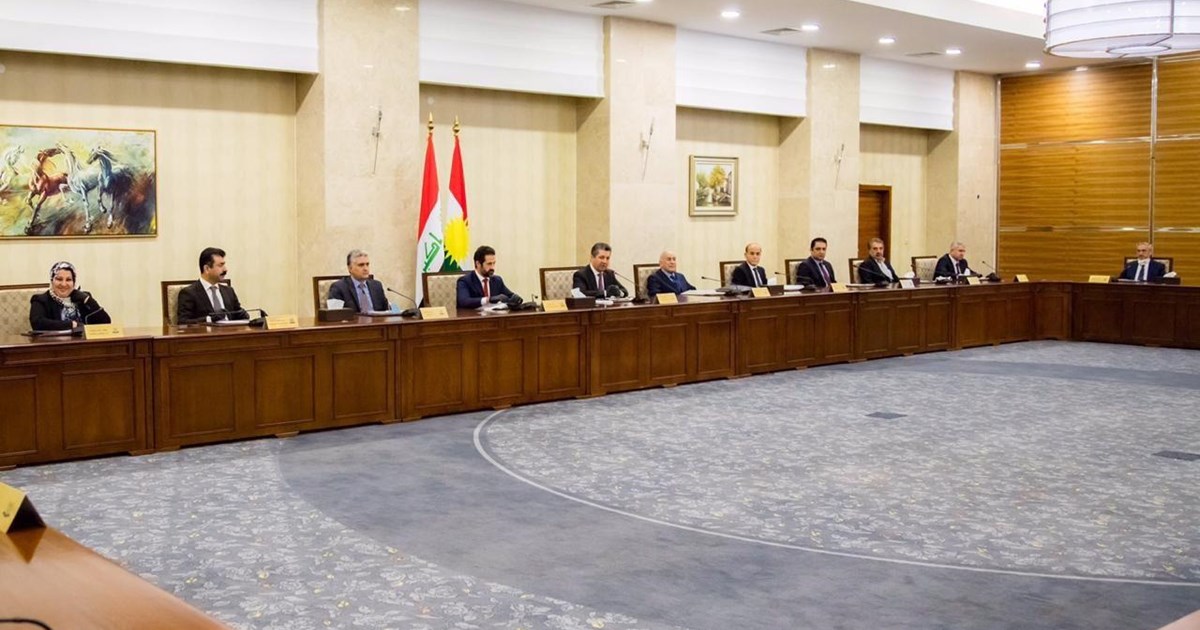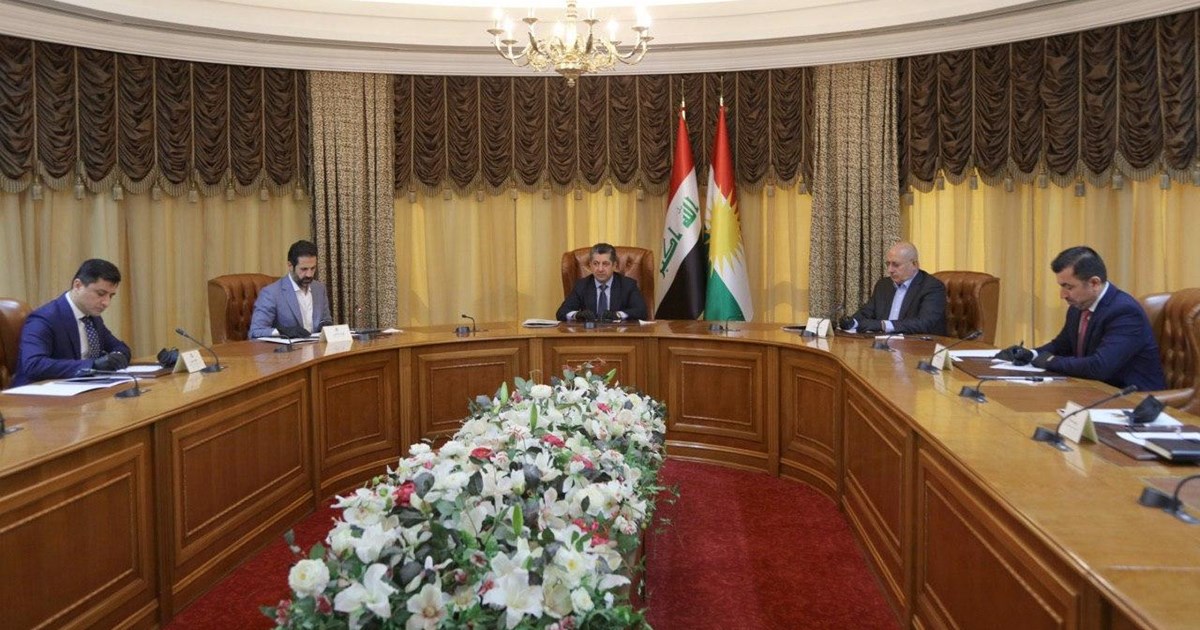Prime Minister Barzani convenes cabinet, approves blueprint to ease financial downturn
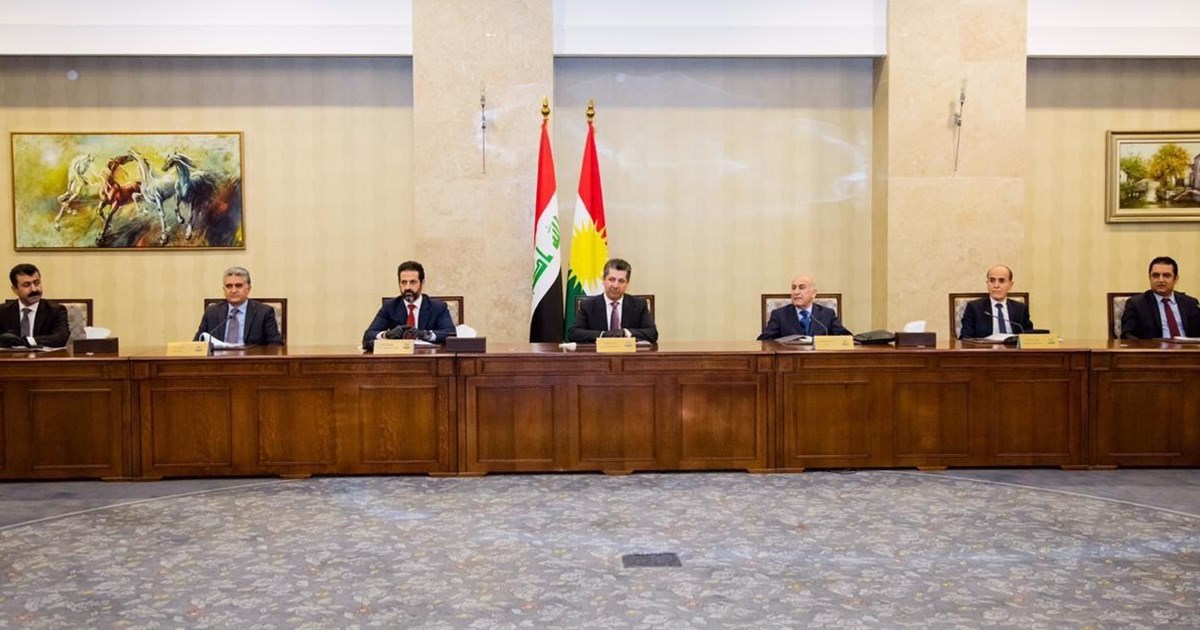
Erbil, Kurdistan Region, Iraq (GOV.KRD) – Prime Minister Masrour Barzani chaired a cabinet meeting in Erbil to discuss the government’s plan to deal with the economic downturn caused by the global coronavirus pandemic.
In the meeting, which was also attended by Deputy Prime Minister Qubad Talabani, the cabinet approved a blueprint to reduce expenditures, increase revenues and continue implementing the Reform Law (2020).
Deputy Prime Minister Talabani briefed the cabinet on recent discussions with federal authorities on budgetary issues and oil exports. The Deputy Prime Minister is heading a delegation to Baghdad for a second consecutive week, to continue these discussions.
The KRG made the following decisions to reduce government expenses:
- Reduce the salaries of members of parliament and high-level officials within the Presidency of the Kurdistan Region, the KRG, the Council of Justice, Provincial Councils, the Security Council, as well as high-level military officials and high-earning pensioners.
- Provide only basic salaries to officials higher then general directors, including governors, mayors and councillors. The Ministry of Finance and Economy will enforce this decision for 30 days.
- The Ministry of Finance and Economy will pay only those employees who have registered in the biometric system.
- Reduce the government’s operational budget. This budget will now cover essential services including purchasing medicines, medical equipment and food for hospitals, as well as funds for prisons and care homes, cleaning cities, providing water and electricity, and road maintenance.
- Provide an online service to manage the operational budget to enhance transparency and reduce bureaucracy.
- Suspend investment budgets, for ministry projects and provincial development schemes.
- The Council of Ministers, in coordination with the Ministry of Finance and Economy, will review the operational budget for all ministries and institutions in the Kurdistan Region.
- Prevent ministries from spending their own revenues.
- Review service costs in the oil and gas sector.
The cabinet also made the following decisions to increase revenues:
- Review border crossing service contracts provided by the private sector in a way that serves the public interest.
- Revoke tariff exemptions that are incompatible with the KRG's laws.
- Strengthen border crossing regulations to prevent irregularities that reduce government revenues.
- Ensure local companies working in the oil and gas, security, communications and construction sectors pay tax in accordance with the law.
- Review how companies collect service fees from ministries in order to serve the public interest.
- Impose taxes on oil imports and refineries.
- The Ministry of Agriculture and Water Resources will prepare a list of all agricultural lands which have been trespassed, and review the contracts of all lands which have been leased.
- Reclaim land given to licensed investment projects which have not started.
- Notarise land given to individual, as well as residential units under the name of owners and review service fees at residential complexes.
- Every ministry will conduct a survey of its properties so they considered as a source of public income.
- The Ministry of Finance and Economy will recover trade debts according to the Reform Law.
- The private sector will be given the go-ahead to provide electricity, and collect electricity fees, under government supervision.
- The private sector will be allowed to buy and trade farmers' wheat in the Kurdistan Region under government supervision in a bid to support the agriculture sector.
- The KRG will provide discounts to people covering their overdue mortgages, wedding loans and small debts provided they return the entire overdue amounts by 15 June 2020.
The cabinet also made the following decisions to ease the financial burden on those affected by the lockdown measures imposed to protect the public from the coronavirus:
- The KRG will not take rent from people using government property for trade, industry, agriculture or other purposes, during the curfew imposed by the pandemic virus.
- People will not be liable for late payment of fines incurred by violating government laws, if these delays were caused by KRG coronavirus regulations.
- The Minister of Religious Affairs should take legal action against those people who lease its properties but make no payments.
- There will be a 15% discount for water and electricity charges until 15 June 2020.
- The Tax Office will not take income tax for the duration of the curfew.
The KRG also made the following decisions on resuming work at ministries:
- Work will resume at the Council of Ministries' Diwan on 6 May.
- It will be at the ministries’ discretion to resume work at their offices on 11 May.
- The KRG Department of Information Technology will where possible coordinate with government bodies to process peoples’ work electronically.
- People can visit KRG institutions after 11 May, while taking health guidelines into consideration.
The cabinet also discussed recent calls from some local authorities for greater decentralisation. More decentralisation will occur under the guidance and supervision of the Council of Ministers, in accordance with the cabinet’s agenda.

